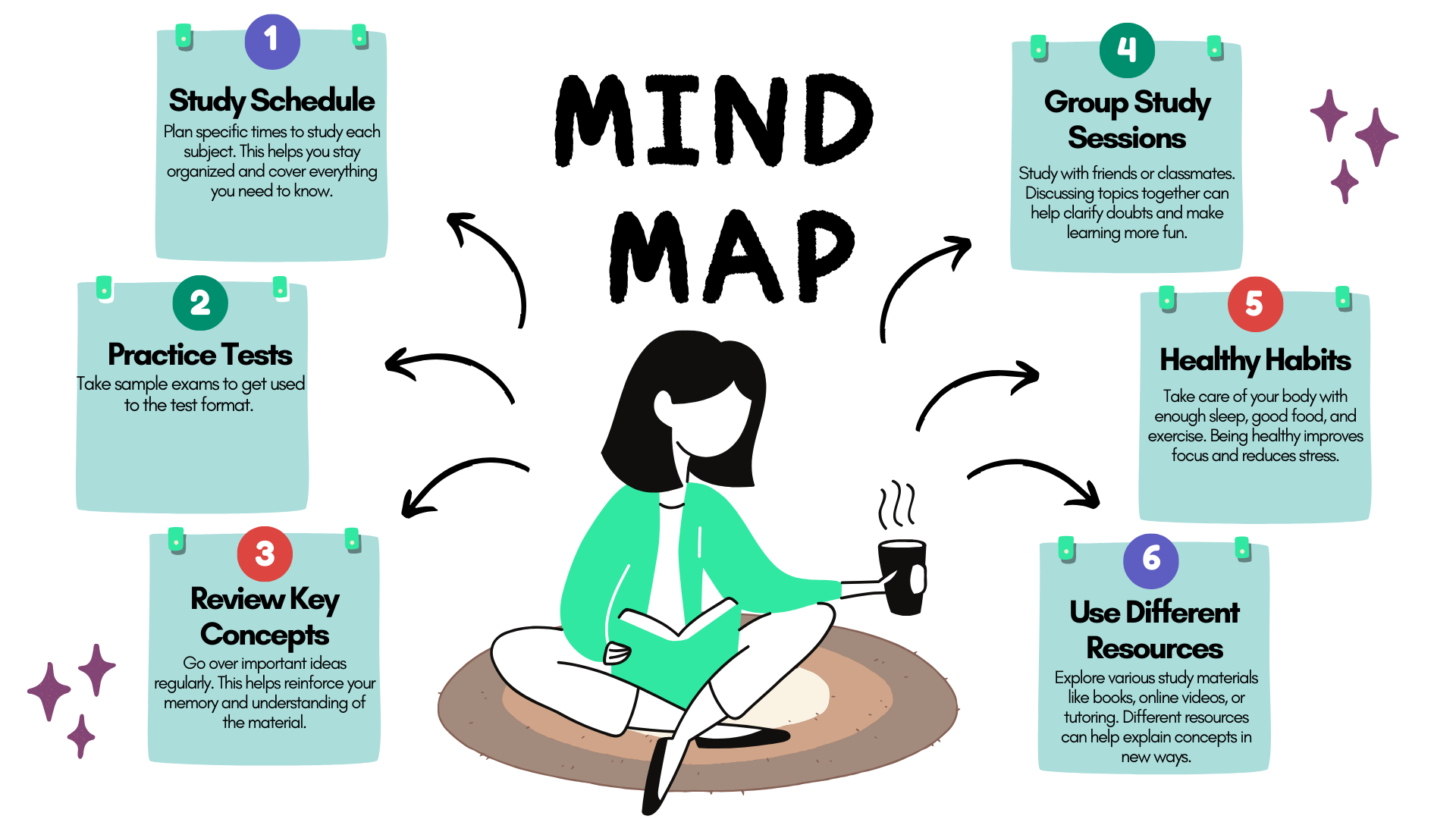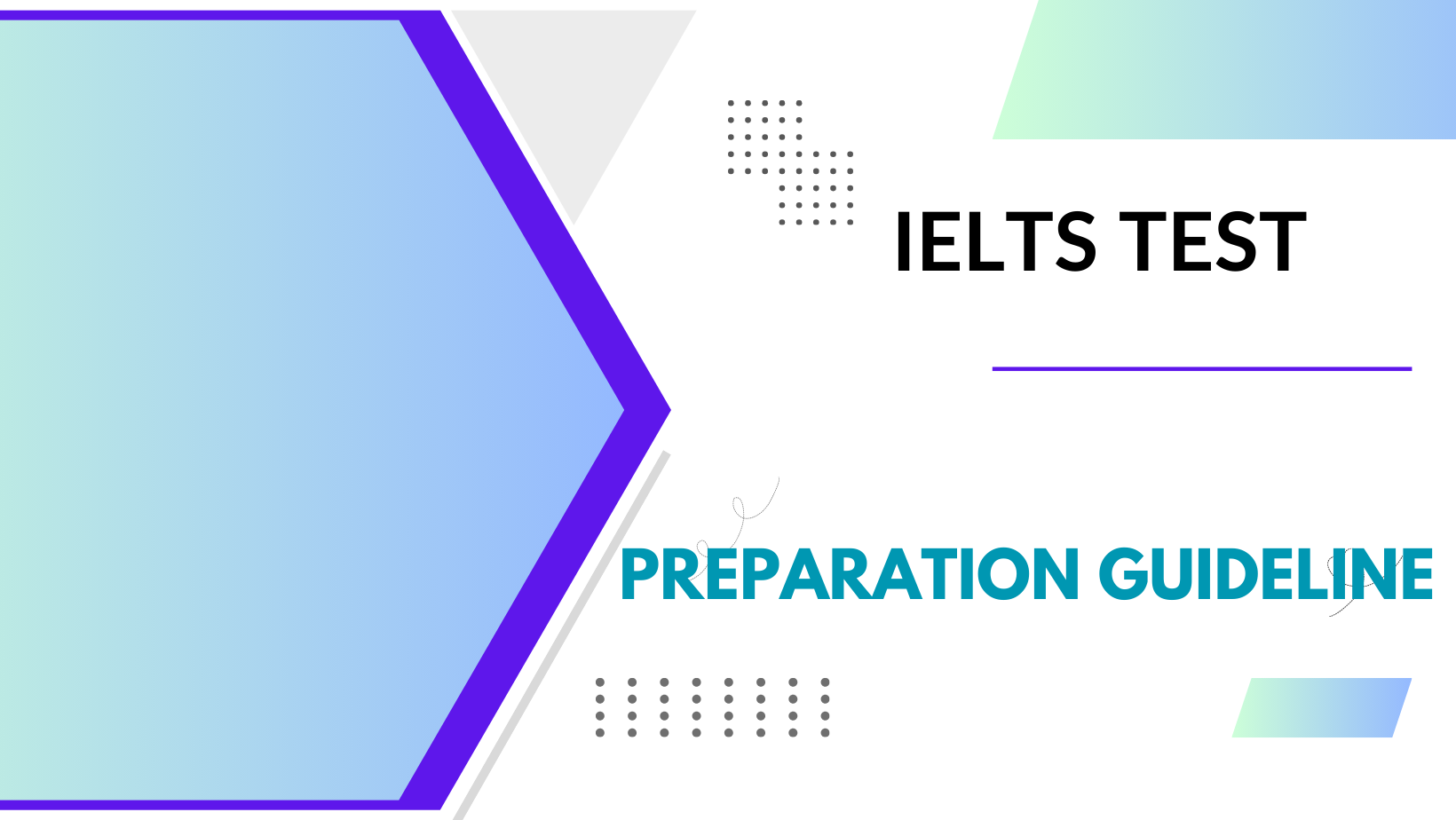IELTS test preparation guideline:
Preparing for the IELTS (International English Language Testing System) test involves improving your skills in four key areas: Listening, Reading, Writing, and Speaking. Here’s a structured guide to help you prepare efficiently:

1. Understand the IELTS Test Format
The IELTS test consists of four sections:
- Listening: 40 questions in 30 minutes.
- Reading: 40 questions in 60 minutes.
- Writing: 2 tasks in 60 minutes.
- Speaking: 3 parts, lasting 11–14 minutes.
Types of IELTS:
- Academic IELTS: For those applying for higher education or professional registration.
- General Training IELTS: For those applying for migration or vocational training.
2. Listening Preparation Tips
- Practice Listening to Different Accents: IELTS includes various accents (British, American, Australian, etc.), so familiarize yourself with these.
- Take Practice Tests: Use sample listening tests to improve your ability to focus and to understand the variety of accents and speech speeds.
- Improve Note-Taking: During the listening test, you can only hear each audio clip once. Practice taking clear, concise notes to capture key information.
- Listen to a Range of Materials: Listen to podcasts, news reports, and lectures to develop your listening skills.
3. Reading Preparation Tips
- Skim and Scan: Learn to skim (quickly read for the main ideas) and scan (search for specific information) to manage time effectively during the test.
- Focus on Question Types: Be aware of common question types like True/False/Not Given, Multiple Choice, Matching, etc. Practice these specifically.
- Expand Vocabulary: Read a variety of texts, such as newspapers, magazines, and academic papers to improve your vocabulary and understanding.
- Time Management: Practice reading under timed conditions to ensure you can answer all questions in the allotted time.
4. Writing Preparation Tips
- Task 1 (Academic): Practice describing graphs, tables, and charts. Learn how to summarize the information and highlight key trends.
- Task 1 (General Training): Practice writing letters (formal, semi-formal, and informal) with proper structure and tone.
- Task 2: Practice writing essays that present arguments and evidence. Make sure your ideas are clear, organized, and relevant to the question.
- Improve Grammar and Sentence Structure: Work on using a variety of sentence structures and vocabulary to enhance your writing.
- Check Your Work: After writing, always leave time to review your work for spelling, grammar, and coherence.
5. Speaking Preparation Tips
- Practice Speaking English: Engage in regular conversations in English to improve fluency and pronunciation.
- Prepare for Common Topics: The speaking test covers everyday topics like hobbies, travel, education, etc. Be ready to discuss these in detail.
- Answer in Detail: Practice speaking clearly and providing detailed responses. Avoid one-word answers.
- Mock Interviews: Simulate the speaking test with a friend or tutor to get used to speaking on different topics under time pressure.
- Be Calm and Confident: During the speaking test, focus on communicating effectively rather than on being perfect.
6. General Tips
- Take Practice Tests: Regular practice tests are essential to understand the test format, practice time management, and track your progress.
- Get Feedback: If possible, work with an IELTS tutor or join a study group to receive feedback on your strengths and weaknesses.
- Use Official IELTS Preparation Materials: Practice with official IELTS test papers, which are available online or in books to get an authentic feel of the test.
- Stay Consistent: Consistency is key in IELTS preparation. Make a study plan and stick to it.
7. Time Management
- Set a Study Schedule: Allocate specific times each day to work on each section of the test.
- Balance Your Preparation: Don’t focus too much on one area while neglecting others. Develop a balanced study routine.
8. Final Days Before the Test
- Revise Key Concepts: In the last few days, focus on reviewing your mistakes, practicing difficult sections, and consolidating what you’ve learned.
- Rest: Make sure to get enough rest before the test to stay focused and alert.
9. Resources for IELTS Preparation
- Books:
- The Official Cambridge Guide to IELTS
- Barron’s IELTS Superpack
- Target Band 7: IELTS Academic Module – How to Maximize Your Score
- Online Resources:
- IELTS official website (www.ielts.org)
- IELTS preparation apps (e.g., IELTS Prep by British Council)
- YouTube channels offering practice tests and tips.
- Mobile Apps: IELTS Prep by British Council, Magoosh IELTS, etc.
By following these steps, you’ll be well-prepared for the IELTS exam. Good luck!


